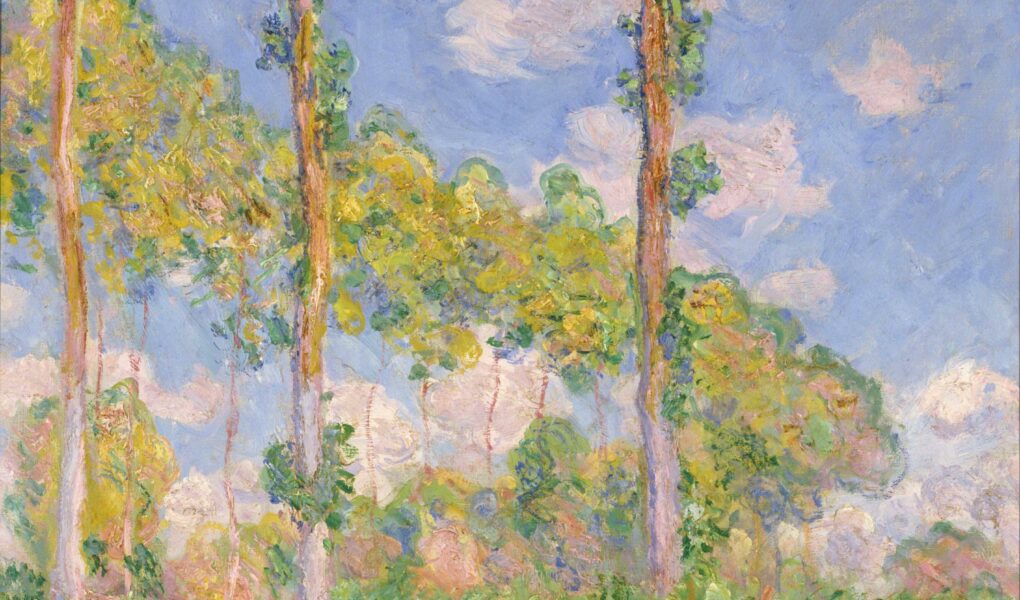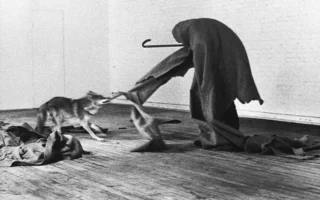Poetry and mysticism in conversation with mystery
Author: Mike Kauschke
Category: Art, Music & Literature
Issue No: 93
Poetry touches us in a way that only mystical art can. Words shape poetry, lead to resonance and ultimately to connection. Ultimately, poetry transforms the recipient. Mike Kauschke analyzes poetry as a mystical tradition that heals the separation so present in today’s capitalist society and reminds us of our wholeness and oneness.
Many years ago, at one of my first Zen retreats, we sat eating. After the meal, the Zen master spoke a few words. And he addressed them to a small fly that was flying around above the table in front of us. Or rather, he told us about it. If we could really see this small inconspicuous creature, then the luminescence of being, the miracle of existence, would be revealed in it. How the fly sits there, cleans its wings, which shine in radiant transparency in the sun. How it soon flies up to search for food remains at the edge of the bowl.

This little episode remained in my memory. The new, open, astonished look at this inconspicuous creature, often perceived as annoying, accompanied me through this retreat. I practiced looking at other inconspicuous things and beings, which I otherwise hardly noticed, with such an alert, loving gaze. And I noticed how many such things there are that I don’t really notice. Our whole life consists of the encounters with and in a reality as which our life happens. The objects I interact with, the people I live with, the more-than-human creatures I am connected to, the great living world of nature, the events of my life, the happenings of a global world.
How much of it do I really experience, in depth, so that it touches my heart, transforms me?
I took this question with me from the retreat, and it has stayed with me all these years. I understood that the Zen master wanted to point out to us that the inconspicuous, the everyday, the very banal, takes on a new brilliance when we learn to see differently. When we open ourselves perceptively to what shows itself to us, be it a fly, a tree, a person, a loving encounter, but also a loss, an injury, a difficult situation in our lives. That which is our life and who we encounter in it comes into a depth, a meaningfulness and a glow when we see it as life’s address to us and with us. We are not separate, isolated beings in a meaningless universe full of things, objects and other beings that are none of our business – unless they are of use to us.
We live with everything and everyone in a great, living, breathing, loving process we call life.
This rushing up of being from within is an experience that many mystics of all spiritual traditions describe in their own words, which vary according to religious context. Often they do it in poetic language. For such experiences, such openings into the streaming depth of existence, can hardly be rendered with our conventional, rational-linear language. Poetic language is able to approach the mystery of our existence, because it does not speak out of analysis or an external will to understand, but out of an inner comprehension, an inner participation in being.
In this transformation of our seeing and thus also of our existence, poetry and mysticism touch each other.
“The intention of monks and mystics,” says poet and Zen practitioner Jane Hirshfield, “is not unlike that of artists: to perceive the extraordinary in the ordinary, changing not the world but the eyes that see it.
In an invoking and connecting consciousness, the inner expands to transform the outer, and the outer expands to transform the seeing.”

Reality as conversation
Poetry finds its own approach to the mystery of existence without relying solely on religious beliefs, particular spiritual practices, metaphysical assumptions, or a mystical worldview-though these resonate in various ways with many poets. But before, within, and beneath all of this
poetry draws from the immediate experience of our being here in a cosmos that infinitely transcends our understanding.
In doing so, the poet recalls that this cosmos is responsive. However little we may understand, however small we may feel ourselves to be in an unimaginably vast universe,
now and here – where we are, as those we are – this universe is responsive. It fulfills its reality in conversation.
And conversation means relationship, connectedness, exchange of meaning. In the end, we might say, it is a conversation of the cosmos with itself, for we are beings within it, are woven into the web of life.
About the author : Mike Kauschke
Mike Kauschke is an author, editorial director of evolve magazine, dialogue facilitator, and freelance translator specializing in books on mindfulness, integral thinking, and organizational development. He practiced Zen Buddhism with teachers in the U.S. and Europe, explored integral, transdenominational spirituality, and worked as a nurse in palliative care and hospice work. His book, In Search of the Lost World – A Journey to the Poetic Dimension of Our Lives, was published in 2022.
This article appeared originally on the German Homepage of Tattva Viveka: Werde wach mit allem




